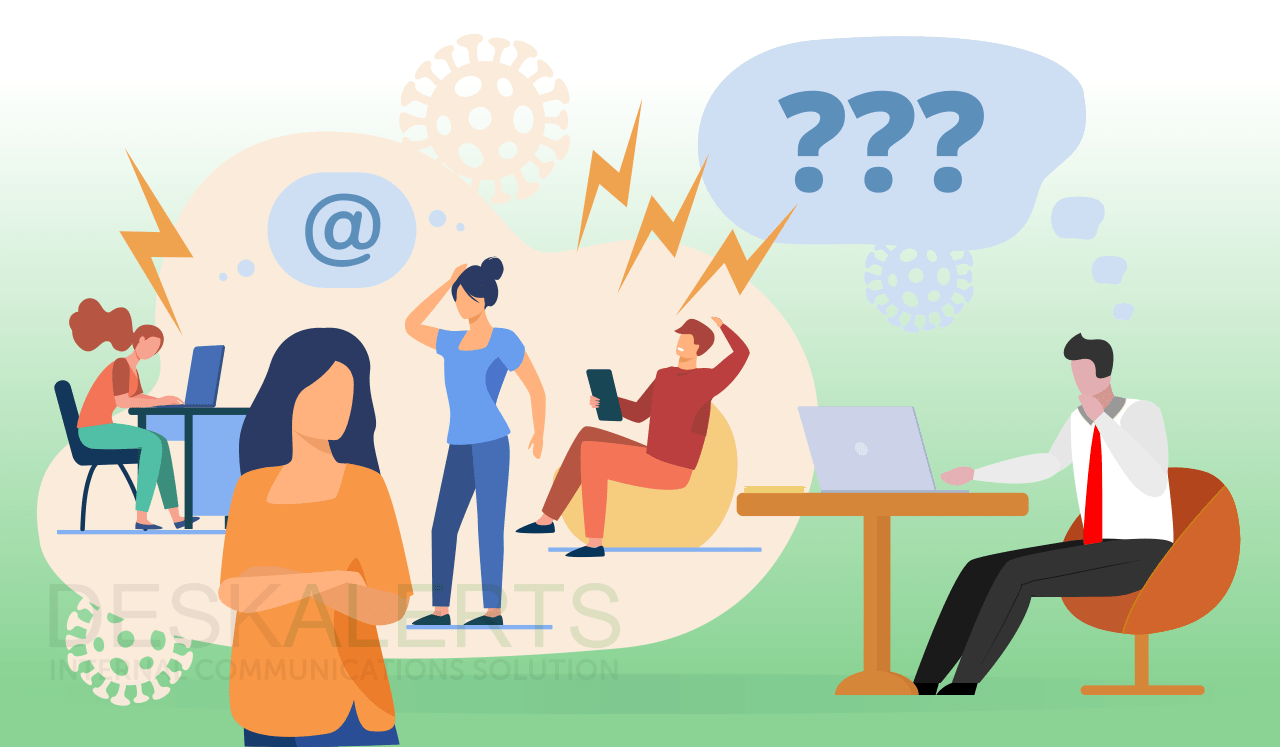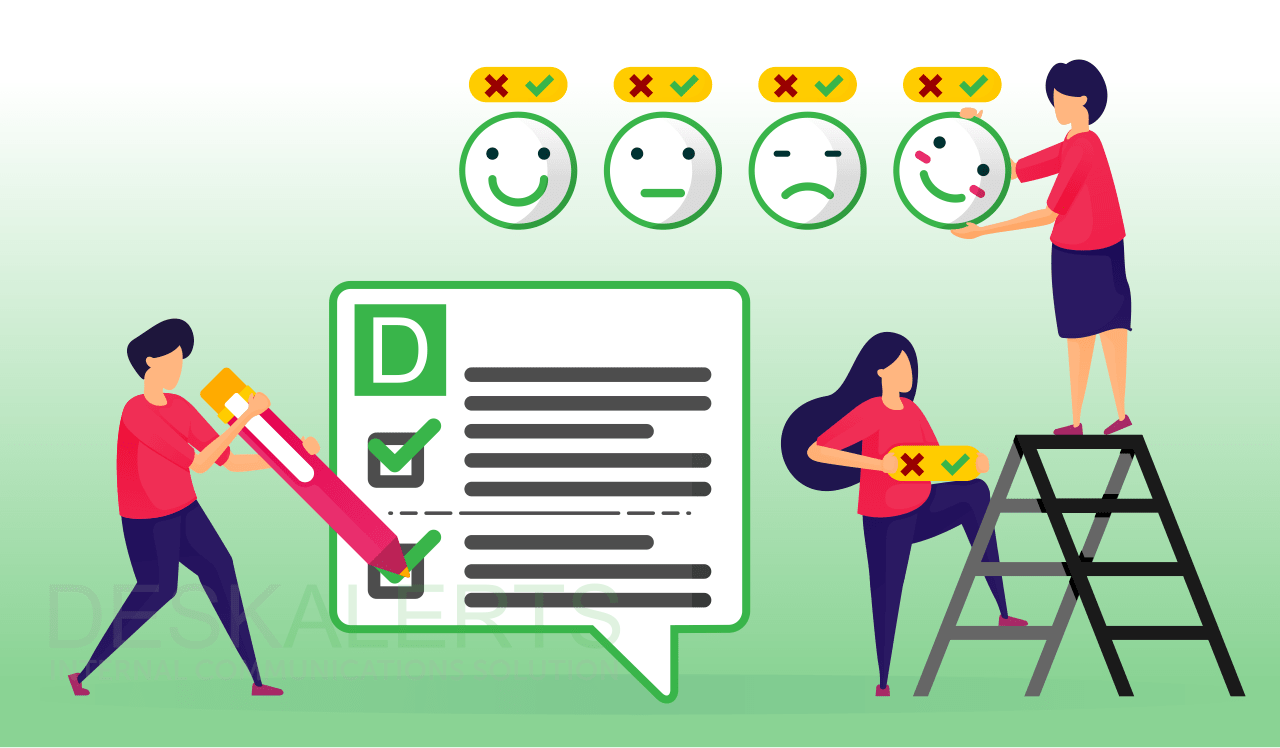 As the COVID-19 pandemic continues around the world, a great focus has been on health and safety - particularly related to masks, hand hygiene and social distancing.
As the COVID-19 pandemic continues around the world, a great focus has been on health and safety - particularly related to masks, hand hygiene and social distancing.
But one of the other health and wellbeing issues managers should take into account is the unseen toll of the virus: the way it is affecting your employees’ mental health.
The pandemic is affecting different employees in different ways. Some are on the front-lines in situations where they could be exposed to the virus, or may have already been exposed to the virus. Some employees are working from home while trying to juggle other responsibilities such as homeschooling of children. Others who live alone and are working from home may be completely isolated. Others may be worried about their job stability, or have a partner who has lost their job, and have financial concerns. And other employees may be dealing with grief and trauma if they have lost loved ones… there are a myriad of different scenarios.
The result is a lot of your employees could be experiencing fear, panic, anxiety and stress at higher rates than usual, which in turn could be affecting their performance at work.
What does this mean for employers?
A recent survey by mental health provider GInger found that nearly 7 in 10 employees say that the current pandemic is the most stressful time they’ve experienced in their professional career. It also found that prescriptions of medication for depression, anxiety and insomnia are on the rise.
The survey also found that 88% of workers said they had been experiencing moderate to extreme stress during the previous four to six weeks, with 62% indicating they were losing around one hour of productivity each day, and 32% said they were losing around two hours of productivity per day because of COVID-related stress.
This highlights that managers need to be aware of the impacts of stress and anxiety on their employees, and should be focussing on helping to manage the issue.
How can employers reduce stress in the workplace during the pandemic?
While managers can’t just wave a magic wand and make all the anxiety and fear caused by the virus disappear entirely, they can help stressed-out employees during this time by implementing different strategies in the workplace to help ease the burden.
1. Ensure you’re communicating regularly with employees
Uncertainty can help to drive fear and anxiety. During this time there are many things that employees are uncertain about - including the security of their jobs. Without proper communications in place, rumors can begin to circulate unchallenged. People can become paranoid and more fearful. The isolation of working remotely, away from other team members, can make people feel as though they are in the dark. Understanding this can help managers reduce stress in the workplace.
It’s important to communicate regularly with employees about issues both large and small to reduce stress in the workplace. Be open and transparent and truthful about what is going on within the company so there is no place for misinformation to fill the void and circulate instead.
2. Offer flexibility
These times are unprecedented and “normal life” isn’t something that exists at the moment for many people. A quote you may have seen circulating on social media recently, originally sent to government employees in Canada, sums it up well: “You are not ‘working from home’, you are at your home, during a crisis, trying to work.”
Offering understanding to employees who are trying to juggle their home and work life and physical health in ways they never have had to before - with technology and other issues thrown into the mix - can go a long way to reducing stress in the workplace.
Employees may need more flexibility so they can manage their lives better. It might mean they need to start earlier or work later, or finish work on weekends and not be tied to 9-5.
At the same time it is important to ensure that your employees are not burning out, working too long because they are at home or because they feel they need to overcompensate. Burn out can have negative health impacts and can cost you some of your most valuable employees in the long-term.

3. Provide mental health resources your employees can access
Some organizations offer benefits to their employees that include access to health and wellbeing services, including counselling to reduce stress in the workplace. During the pandemic this might be something that can be accessed video teleconference with a mental health professional.
Other tools and resources to reduce stress in the workplace could include yoga, meditation and mindfulness videos, access to information on mental health, coping techniques and advice on stress reduction.
You can find some useful resources on the WHO web site - here.
4. Encourage employees to be social with one another
Many employees miss the social interaction with their colleagues where they can chat informally and build their working relationships at the same time. Many people form life-long friendships in the workplace.
While the COVID-19 pandemic makes it hard for people to go for a coffee or have some drinks after work, there are ways to encourage social interaction using technology.
Try hosting online social events for your employees or provide a dedicated platform for them to chat informally that isn’t about work and keeps them connected through the work week. Spending time having fun and forgetting about the more serious things going on can help to reduce stress in the workplace.
5. Equip your managers to respond to stressed-out employees
Unless your managers are qualified psychologists, they might not be fully equipped to handle the responsibility of their employees’ mental health and wellbeing during this time.
It’s important that you offer training to your managers on how to deal with these issues and to understand how to be sensitive, empathetic, respect privacy and find flexible solutions when they have employees who are stressed. They also need to understand how to recognize signs that all is not well with their staff members.
Corporate communication during COVID-19 is a challenge for many communicators. If you want to focus on the message, not the process of sending emails over and over again, use DeskAlerts.
Schedule an online demo and learn how DeskAlerts helps over 700 companies to improve their communications during the crisis.

Best practices for communication to deal with employee stress
Internal communication during a crisis like the COVID-19 pandemic is more than just letting employees know about important announcements from the CEO.
Internal communication should be embedded into all your HR and communication activities that are focussed on employee mental health and wellbeing to ensure that there is sufficient awareness of employee support during this time of pandemic stress.
This includes:
- Ensuring employees can easily access information about health and wellbeing.
- Reminding employees about any relevant workplace health and safety policies (stress at work, employers’ responsibilities in particular).
- Ensuring managers are having one-on-one conversations and checking in with their staff regularly.
- Providing platforms for employees to share information and ideas and collaborate with their colleagues.
- Providing platforms for employees to have social interaction.
- Gathering information on employee health and wellbeing by using pulse surveys.
Delivering this information through a variety of channels, by thinking strategically and creatively, will ensure that managers can help employees deal with stress no matter where they are located. Send mobile alerts, for example, to employees who aren’t at their desks. Remind employees about resources for managing stress via corporate screensavers or wallpapers. Send pop-up alerts containing video to deliver important information.
***
Keeping a focus on mental health and wellbeing during the pandemic is critical to ensure your stressed-out employees can make it through as resiliently as possible, and also ensures your organization remains cohesive and productive.
 Caroline Duncan
Caroline Duncan
 As the COVID-19 pandemic continues around the world, a great focus has been on health and safety - particularly related to masks, hand hygiene and social distancing.
As the COVID-19 pandemic continues around the world, a great focus has been on health and safety - particularly related to masks, hand hygiene and social distancing.







